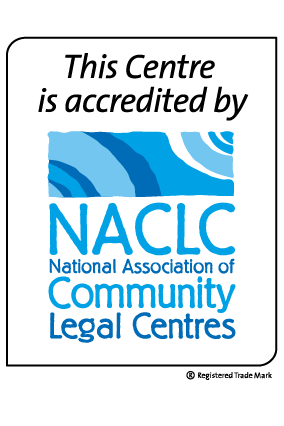Child Protection - Offender Reporting
Who has to report?
If you have been convicted and a conviction has been recorded for an offence involving any sexual activity with someone under 16, including sexting more than one time, you can be put on the Child Protection Offender Reporting Register. This means you have to report details about yourself and where you are to police. This is so police can keep track of where you are living and working. If you have not been found guilty of a sexual offence against a person under 16, but you have been convicted of another offence and the court thinks you are a sexual risk to anyone under 16 it can order you to report details about yourself and your movements. You must be given a written document by a Youth Justice Officer or Police Officer which says what things you have to report to police about. If you think the court should not have made this Order speak to your lawyer about an appeal.
If you have to report, your details will be put on the Child Protection Offender Reporting Register. Only certain people can see this register and they have to keep the information confidential. You may also be recorded on a national sex offenders register. Once someone’s name is on the Queensland register it can only be removed if the police agree. There are serious employment consequences for anyone who is recorded on the register, for example they may not be allowed to be a teacher, nurse or child care worker. If you have been ordered to report because of child sex offences in another state of Australia and you come to Queensland for more than 14 days, you must tell the police in Queensland you are here.
What do I have to report?
Name and address, age and date of birth, any telephone contact number, and any email address belonging to anyone under 18 you will have or have had ‘reportable contact’ with within the previous 24 hours. Reportable Contact is physical contact, communication in person, in writing, over the phone or by internet or befriending. This applies to contact with children whom you are familiar, friends, children you have to look after or supervise or children you intend to befriend. Reportable contact does not include contact with children incidental to life for example, buying takeaway food from a shop that has child employees. You also have to report the type of contact you have or will have with the child - 24 hours
Your name, any previous name and how long you were known by the previous name - 7 days
Your date and place of birth- 7 days
Where you live and if you don’t have an address then the area where you are usually. If you stay somewhere for at least 14 days of the year this will count as an address - 7 days (However, if you are subject to an order under the Dangerous Prisoners (Sexual Offenders) Act 2003 (Qld) you must notify of a change in address or locality within 24 hours.)
Details of any current, previous or new tattoos or permanent marks on your body - 7 days
If employed, nature of employment, name of employer, address or locality of places of employment - 7 days
Name of any club or organisation you are part of where people under 18 go - 7 days
The make, model, colour and registration of any cars you own or drive for any 7 or more days of the year OR caravans or trailers you reside in or that has been attached to a vehicle you have driven for 7 days within the last year- 7 days
Details of any email addresses, internet user names or any other user name or identity you use or plan to use on the internet or phones - 7 days
If you had to report in another state or country because you were convicted of a sexual offence that involved children under 16 you need to say where and when this happened - 7 days
If you have been in detention since you started reporting, report when and where this was - 7 days
Details of social networking sites you are involved in, registered, or open an account with- 7 days
Details of any phone or internet you use or plan to use and the type of service - 7 days
Details of any email addresses, internet user names or any other user name or identity you use or plan to use on the internet or phones and associated passwords - 7 days
Your passport number and the country of issue of your passport - 7 days
Details of each digital device that you own or have access to including software application stored or accessed by each device - 7 days
If you plan to leave Queensland to travel within Australia for 48 hours or more or at least once a month, then you need to say the general reasons for your travel and generally where you are going - 7 days
When do I have to report?
You will be given a Notice of Reporting obligation, which will tell you when you need to first report.
- Generally you need to report within 7 days of being sentenced for the offence.
- If you are in detention, then you will need to report within 7 days of leaving detention.
- If you have just moved to Queensland and you had to report in your previous state or country, then you must contact a police station within 7 days of arriving in Queensland.
You will then be required to make periodic reports starting in the first month following the initial report.
If you plan to leave Queensland for 48 hours or more in a row to travel elsewhere in or outside of Australia then at least 7 days before you leave you need to tell the police where you plan to go, the dates and address you will be staying at each place, when you will be back and the details of any contact that you will have with children outside the random contact in everyday life. If you change your travel plans or decide not to go you also need to report that within 48 hours. The Queensland police will give a copy of the report of your travel plans to the Australian Federal Police. When you return to Queensland, you must report your return within 48 hours entering and remaining in Queensland.
How long do I have to report for?
The length of time you have to report for depends on the specific offences you have been found guilty of and whether you were later found guilty of further sexual offences against people under 16 years of age.
Where and how do I report?
If you are given a Notice that says you have to report at a particular police station then you need to report at that station, otherwise you can report to your local police station in person. You should take ID to show who you are or the police officer may take your fingerprints. You must provide a DNA sample to the police if they ask for it.
You must report in person for your first report, yearly reports, reports about change of address and a report about a new tattoo, removal of tattoo, change to a tattoo or new permanent mark on your body. The police officer may require you to be photographed.
Other reports can be made by telephone or online to your police station. Speak to the police about organising this. When you report in person you can ask to speak to the police where other people cannot hear and you can have someone with you to support you. As soon as possible after the police receive your report, the police officer must send you a letter with a copy of the information you reported.
What if I move to a different state?
The law says you have to tell the police in Queensland if you plan to move out of Queensland. The law in your new state might also say you have to report to the police once you get there.
What if I don’t report when I am meant to or lie when I report?
If you don’t comply with the reporting obligations, unless you can prove you have a reasonable excuse, you are committing an offence.
Can my phone be accessed by police?
If the police reasonably believe that you have committed an offence, then they have the power to take your electronic devices.
Browse other legal topics
This sheet is intended to provide general legal information about the law in Queensland. This information is not legal advice. If you have a particular legal problem you should contact a solicitor for legal advice. Below is a list of agencies that might be able to assist you, including legal agencies.
This sheet was last reviewed and updated in July 2023. The Youth Advocacy Centre does not accept responsibility for any action or outcome because of anyone relying on the information provided.
Who can help?
Youth Advocacy Centre (YAC) www.yac.net.au ……………………… 3356 1002
Hub Community Legal www.communitylegal.org.au…………… 3372 7677
YFS Legal www.yfs.org.au………………………………………………………. 3826 1500
Legal Aid Queensland www.legalaid.qld.gov.au………………. 1300 651 188
Aboriginal & Torres Strait Islander Legal Service www.atsils.org.au………… 3025 3888 or (free call) 1800 012 255 (24hrs 7 days a week)
Translating & Interpreting Services (24hrs)…………………………… 131 450
Youth Legal Advice Hotline ……………………………………………… 1800 527 527
Community Legal Centres (CLCs) see www.naclc.org.au for your nearest CLC
Follow Us
Follow us on social media for information on laws, youth rights, and news.
Contact YAC
Street address: Level 4, 16 Peel Street, South Brisbane Q 4101
Mailing address: Level 4, 16 Peel Street, South Brisbane Q 4101
Tel: (07) 3356 1002
Bussiness hours: 9am - 5pm, Mon - Fri

If you need urgent assistance outside of these hours:
- Youth Legal Advice Hotline 1800 527 527 (Mon to Thurs 8am - 9pm, Friday 8am to Sunday 5pm)
- Kids Helpline 1800 551 800 (24/7, 365 days per year)
- Lifeline 13 11 14 (24/7, 365 days per year)
- Homelessness Hotline 1800 474 753 (24/7, 365 days per year)
- If you are over 18, and seeking access to Mental Health Services in Queensland, Acute Care Team on 1300 MHCALL (1300 64 2255).


